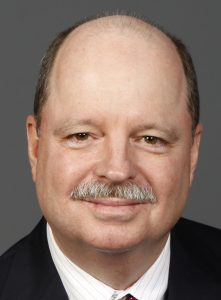University Credits But No Degree: Colleges Aim to Re-Engage Stopped-Out Students
University of Texas at El Paso and El Paso Community College are contacting former students and enticing them to return to school.

Get stories like this delivered straight to your inbox. Sign up for The 74 Newsletter
Her goal was to make enough money to put herself through college.
Instead, the then 20-year-old entrepreneur put aside her academic dreams to focus on her business, The Nail Club. Today, Sotelo has two salons and plans to open a third. She also has taken the initial steps to return to EPCC this fall to complete her degree.
According to an April 2023 report published by the National Student Clearinghouse Research Center, the number of adult Texans in July 2021 with some college credits but no higher education credential rose to more than 2.6 million, which was a 4.5% increase from the previous year. That was bigger than the national growth of 3.6%.
Sotelo wants her associate degree because she likes to finish what she starts, but she also plans to enroll at the University of Texas at El Paso at some point to pursue a bachelor’s degree in finance or accounting to support her business. Her immediate goal is to build a cosmetology team that can manage her salons when she is not there.
“I wanted to work and go to school, but then the business was successful,” said Sotelo, who tried to do both as she set up her first salon during the spring 2018 semester. “It didn’t work.”
Experts believe the pandemic and more employment opportunities with higher wages were among the main reasons behind the increased number of Texans with some college, no degree or credential (SCNDC). For others, the reasons may have included health issues, a lack of funds, or changed responsibilities at home. Higher education leaders hope that many of those people will return to continue or complete their academic journeys.

Tom Fullerton, UTEP professor of economics and finance, said it was important for students to complete their degrees or technical certifications because “that complete package” will enhance their knowledge and make them stronger candidates for jobs where degrees and credentials are needed.
But Fullerton was not dismayed by the increased SCNDC numbers. He referenced a recently published Texas A&M study that showed the percentage of Texans who drop out of high school fell to 15.2% in 2021 from 19.3% in 2012. He said more people finish high school, enroll in college, learn what they need to get a job, and leave college to enter the workforce.
“Once they get a job, they don’t necessarily see the benefit of finishing a college degree, which can be expensive,” Fullerton said.
The UTEP professor said that in a service sector, information-age economy, many jobs do not require technical certification or a college degree, but they may involve training beyond high school. Experts have stated that by 2030, up to 70% of all new jobs will require some post-secondary education.
“The fact that they are taking additional education credits above and beyond secondary school increases their productivity and increases the overall labor force quality for the state,” Fullerton said.
Mark Garrett Cooper, a professor of media studies at the University of South Carolina at Columbia, wrote in a recent opinion piece in The Chronicle of Higher Education that a college degree does not always mean that graduates have the skills an employer wants.
“Anyone paying attention to the non-academic job market will know that skills, rather than specific majors, are the predominant currency,” he wrote.
‘A big concern’
Those behind the National Student Clearinghouse Research Center study countered that it was important to change the SCNDC trend because the U.S. will face a skilled-worker shortage as more employees retire.
According to the 2021 U.S. Census Bureau’s American Community Survey, the most recent data available, El Paso’s population age 25 and older was 542,747. Of that number, 21% had some college, but no degree. Almost 35% had an associate degree or higher.

While neither EPCC nor UTEP provided the numbers of their stop outs, both shared some of their efforts to contact those former students and entice them to return.
EPCC expanded its Recruitment Services in fall 2020 to include a small, but growing call center that contacts students who have been out of school for a year. The call center clerks are especially interested in those students who are close to earning their degree or credential. In some cases, it could be as close as 15 credit hours for a 60-hour degree.
Depending on the reasons for stopping out, the center will try to connect the student with the campus office to address the situation. For example, if the issue was financial, the student will receive information about the availability of additional Pell grants, scholarships or other financial aid. For students with time conflicts, an adviser may suggest a multidisciplinary studies degree tailored to their interests and their earned course credits.
“Right now, (stopped-out students) are doing OK because wages are up, but what’s going to happen when the workforce changes, and (employees) don’t have a credential behind them,” said Carlos C. Amaya, vice president of Student & Enrollment Services. “I think that’s a big concern.”
Amaya added that a growing number of returning students, especially males, are enrolling in courses for credentials or for an associate of applied science degree, which involves specific technical skills, so they can enter the workforce quickly.

The University of Texas at El Paso created in 2021 its Enrollment Success Center, an arm of the Division of Student Affairs, to provide stopped-out students with helpful information about financial aid and course advice as well as re-enrollment. A university spokesman said that in fall 2022, the institution used all its efforts to re-enroll more than 1,800 students who had stopped out of UTEP.
This article first appeared on El Paso Matters and is republished here under a Creative Commons license.![]()
Get stories like these delivered straight to your inbox. Sign up for The 74 Newsletter

;)